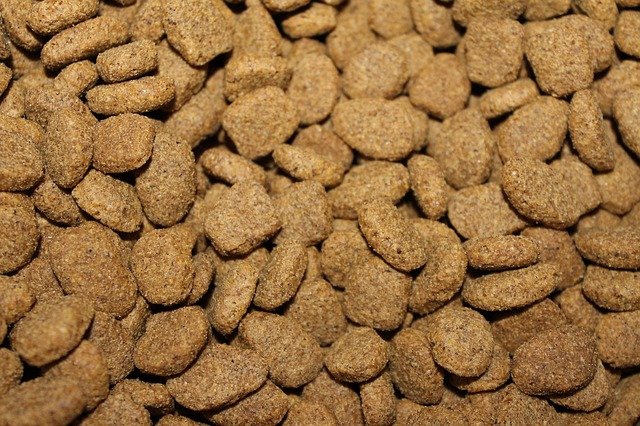
The Dangerous Link Between Grain-Free Dog Food and Heart Disease
Grain-free pet diets have become very popular over the last several years. Following public perception, many pet food companies promote grain-free diets as being a more natural alternative to conventional diets. However, this trend has led to serious health side effects.
A recent study performed by the FDA indicates that grain-free diets may play a role in the development of a specific type of heart disease in dogs. In this post, we will discuss grain-free diets, how they became popular, and their role in heart disease.
Dog Food Has Historically Always Had Grains
Grains have been included in pet diets since we began domesticating dogs. Grains that are commonly included in dog food diets are soy, wheat, rice, corn, and barley. These are an easy and cheap source of energy and can provide many key nutrients such as carbohydrates, fiber, vitamins, and minerals.
The Origins of Grain-Free Dog Food
Within the last 5-10 years, many companies have began manufacturing foods that do not contain any of these ingredients. The idea behind grain-free diets originated from the notion that dogs should have a diet similar to their wolf ancestors.
The idea further gained popularity as we as humans learned more about dietary restrictions such as Celiac’s disease. Many dog owners thought to themselves, “If glutens and grains can cause allergies in humans, I’m sure they can cause allergies in dogs.” The trend spiraled out of control and now many dog owners consider grain-free diets to be the gold standard.
Grain Allergies Are Extremely Rare in Dogs
Although a significant population of our canine companions may have allergies to certain types of food, It is very unlikely that the culprit is related to grains. Instead it is much more likely their allergy is related to an animal protein source. A study performed in 2016 indicated that the most common allergens reported in dogs are beef, dairy products, and chicken. The same study indicated that grain allergies are extremely rare in our dogs.
Heart Disease and Grain-Free Dog Diets
As grain-free diets gained popularity, veterinary cardiologists began to notice an interesting trend. Many dog breeds that had no known genetic predisposition were developing a heart condition called Dilated Cardiomyopathy (DCM). In this condition, the muscles of the heart do not contract properly, and in response, the chambers of the heart become dilated.
Scientists Link Grain-Free Diets to Heart Disease
Interestingly enough, cardiologists were noting that many of the animals that were developing DCM were eating grain-free diet. This caused the Food and Drug Administration (FDA) to launch an investigation on the effects of grain-free diets and their link to DCM. In July of 2019, the results of this investigation revealed that of the animals that were diagnosed with DCM between January 2014 through April 2019, 91% of the reported diets were grain-free.
Which Grain-Free Dog Food Brands To Avoid Most
The grain-free diets that had the highest incidence of developing DCM were Acana, Zignature, and Taste of the Wild. Additionally, many of the diets indicated had peas and/or lentils instead of grains in them.
Signs Your Dog’s Grain-Free Diet is Causing Health Problems
Signs that may be indicative of DCM are lethargy, coughing, difficulty breathing, or collapsing. Luckily, the same report by the FDA reported that with early intervention, these signs, and the changes to your pet’s heart can be reversed by switching to a different diet.
In general, there is probably very little reason for most dogs to be fed an exclusively grain-free diet and in fact, we now have evidence that doing so may be detrimental to your dog’s health.
If you or anybody you know have been feeding grain-free diets and your pet has developed any of the symptoms listed above, please contact us here at Essex Middle River Veterinary Center to discuss which diet may be best for your furry friend.
— Dr. Wesley Leggett
Essex Middle River Veterinary Center provides medical and surgical care for cats and dogs at our animal hospital and veterinary clinic in Essex, Maryland, just outside of Baltimore. Our services include preventive wellness care exams, vaccines, spays/neuters, and a variety of specialized care. Our state-of-the-art veterinary offices are conveniently located near I-695 where we see pets from Towson, Honeygo, White Marsh, and other neighboring Baltimore areas.
